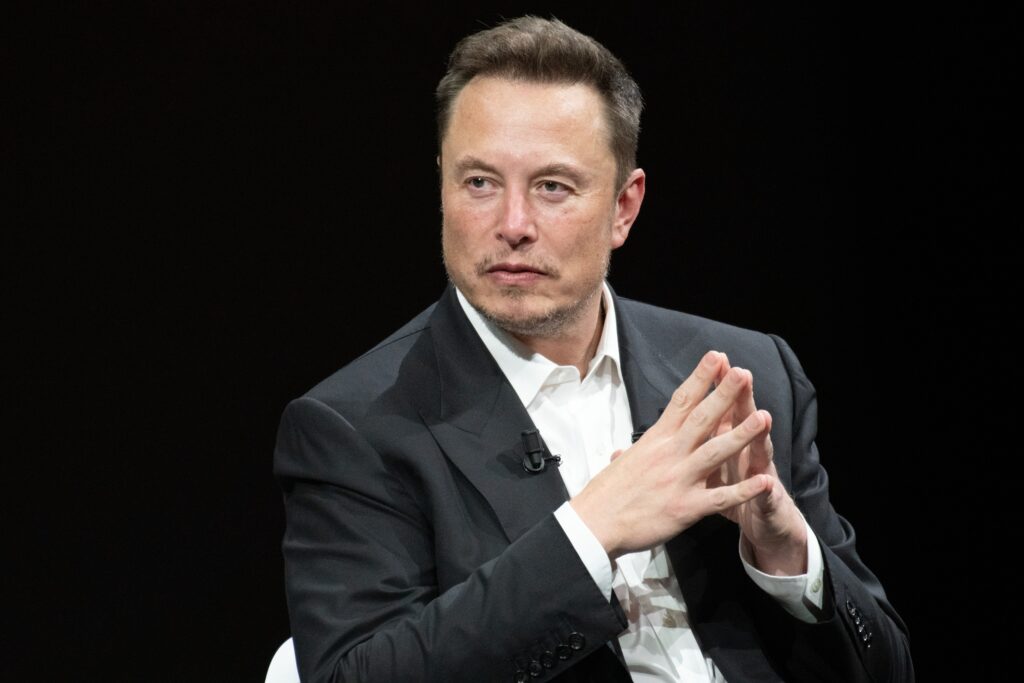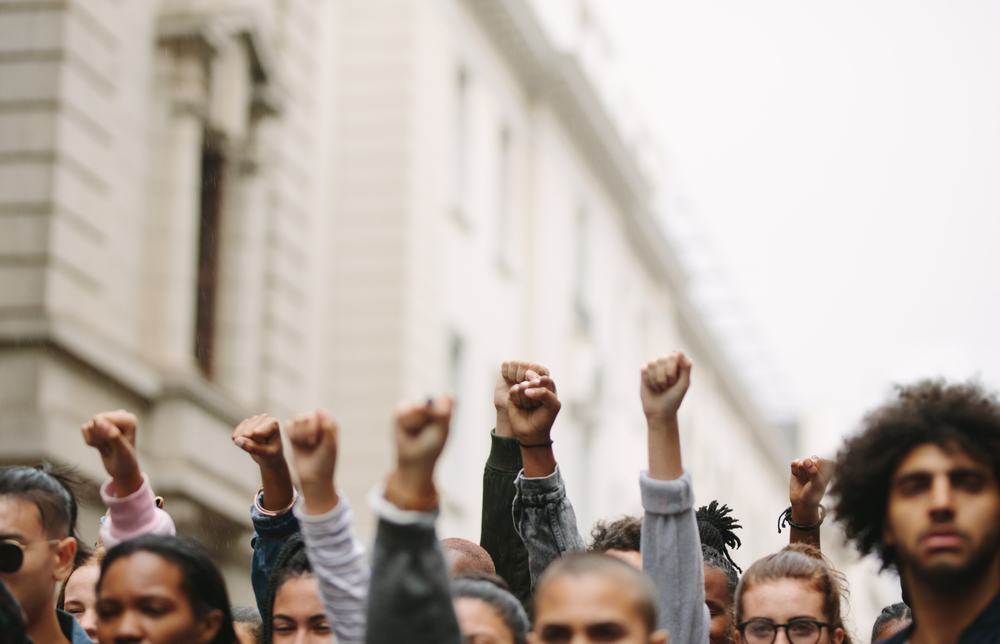Older generations have seen powerful figures rise and fall, but Elon Musk’s growing influence is sparking a frustration they can’t ignore.

Elon Musk wasn’t elected to anything, yet his influence over the country keeps growing—and older Americans are starting to lose patience. They’ve lived through decades of power struggles, corporate takeovers, and tech revolutions, but something about Musk’s grip on everything from space travel to social media feels different. It’s not just about wealth; it’s about control.
His decisions ripple across industries, politics, and even free speech, often with little oversight. For a generation that values accountability, this unchecked power is raising red flags. People who’ve seen history repeat itself know when something doesn’t sit right—and Musk’s influence is no exception.
1. They’ve seen this type of unchecked corporate power before and know where it leads.

Older Americans have lived through decades of corporate titans who promised innovation but delivered monopolies. They remember when AT&T controlled all telecommunications, when Standard Oil dominated energy markets, and when Microsoft’s operating system monopoly stifled competition. Elon Musk’s simultaneous control of space access (as reported in the Independent), as well as electric vehicles, social media, and brain interfaces triggers their well-earned skepticism about consolidated power.
What younger generations might see as exciting disruption, older Americans recognize as dangerous territory. They’ve witnessed how unchecked corporate control inevitably leads to higher prices, fewer choices, and diminished accountability. Their resistance isn’t about opposing innovation – it’s about understanding that distributed power and healthy competition created America’s strongest economic eras.
2. Social Security and Medicare fears make them especially sensitive to billionaire tax avoidance.

When you’ve worked your entire life contributing to Social Security and Medicare, watching the world’s richest man pay proportionally less in taxes than you do strikes a particularly raw nerve. Older Americans closely follow debates about entitlement program solvency and understand that billionaire tax avoidance directly threatens benefits they’ve earned through decades of payroll contributions.
Musk’s public complaints about taxation while benefiting from billions in government contracts and subsidies feel especially hypocritical to those living on fixed incomes, as reported in Fortune Magazine. Many seniors remember a time when America’s wealthiest proudly paid much higher tax rates while still building successful companies. The contrast between their carefully planned retirement budgets and Musk’s ostentatious displays of wealth – from rocket launches to Twitter purchases – makes his tax minimization strategies feel not just unfair but personally threatening to programs they depend upon.
3. They value stability and predictability in essential services and markets.

After decades navigating life’s uncertainties, older Americans particularly value stability in essential services and markets. They’ve structured retirement plans around certain assumptions about how critical systems function. Musk’s chaotic management style – from abrupt Twitter policy changes to volatile Tesla stock manipulation through casual tweets – introduces unwelcome unpredictability into platforms and investments many seniors rely upon.
The erratic nature of Musk’s leadership style is especially troubling to those who understand that stability creates confidence, and much of his playbook is written to manipulate and confuse, according to the New York Times. Retirees don’t have unlimited time to recover from market disruptions or adapt to radically changed platforms. When Musk arbitrarily changes Twitter’s verification system, older users lose an important tool for identifying reliable information sources. When his tweets cause Tesla stock to swing wildly, retirement accounts fluctuate for reasons unrelated to company performance.
4. Their extensive life experience helps them distinguish between genuine innovation and self-promotion.

Decades of watching technological revolutions unfold has given older Americans a finely tuned detector for separating substantive innovation from clever marketing. They’ve seen countless “revolutionary” products fail to deliver on breathless promises. Musk’s pattern of announcing ambitious deadlines for self-driving cars, Mars colonies, and brain interfaces – only to repeatedly miss them – triggers their well-developed skepticism about technologists who overpromise and underdeliver.
Today’s seniors have adapted to more technological change than any previous generation, from rotary phones to smartphones, typewriters to tablets. Their skepticism comes from pattern recognition – they’ve noticed how Musk announces new ventures precisely when existing ones face troubles, directing attention away from production problems, safety investigations, or missed targets.
5. The civil rights era taught them to recognize dangerous rhetoric and demagogic tendencies.

Many older Americans came of age during the civil rights movement, developing finely tuned awareness of how inflammatory rhetoric can damage democratic institutions. They recognize in Musk’s communication patterns – from casual Hitler references to amplifying conspiracy theories – echoes of divisive figures they’ve seen cause real harm throughout their lifetime. Having witnessed how demagogic language can rapidly transform into real-world violence, they take his provocations more seriously than younger followers might.
Their concern isn’t partisan but experiential. They’ve lived through periods when amplifying fringe voices and attacking democratic institutions had devastating consequences for American unity and progress. When Musk reinstates previously banned extremist accounts or mocks traditional media, older Americans don’t see a champion of free speech but a dangerous erosion of the guardrails they’ve seen protect democracy from its worst impulses.
6. They remember when government investment powered innovation rather than billionaires taking credit.

Today’s seniors grew up during America’s most ambitious public innovation era – when government funding built interstate highways, launched space programs, created the internet, and developed life-saving vaccines. They find it particularly galling when Musk portrays government as an innovation obstacle while his companies benefit enormously from public contracts, subsidies, research, and infrastructure. Their lived experience directly contradicts his narrative about private genius alone driving progress.
The contrast between the humble public servants who led previous innovations and Musk’s self-aggrandizement feels particularly stark to older Americans. They remember when NASA engineers, despite achieving the seemingly impossible feat of reaching the moon, remained relatively anonymous public servants rather than celebrity billionaires. Musk portrays himself as single-handedly advancing humanity while denigrating the public institutions that enabled his success.
7. Their concern for grandchildren makes them especially worried about his environmental contradictions.

Climate change represents an urgent intergenerational ethical issue for older Americans worried about the world their grandchildren will inherit. While they initially appreciated Musk’s electric vehicle contributions, his increasingly contradictory environmental positions – from cryptocurrency promotion to private jet usage to right-wing climate skeptic support – suggest his green credentials were more marketing strategy than genuine conviction.
The inconsistency appears particularly problematic given Musk’s enormous influence on public opinion and policy. Many seniors invested in Tesla specifically to support environmental progress, only to watch its founder embrace positions undermining broader climate action. They understand that addressing climate change requires consistent, system-wide approaches beyond simply selling electric cars to the wealthy.
8. They’ve witnessed how wealth inequality undermines democratic stability and social cohesion.

Today’s seniors have lived through America’s transformation from a relatively equal post-war society to today’s staggering wealth concentration. Having experienced how broadly shared prosperity created America’s strongest communities and most stable democratic era, they view Musk’s astronomical wealth accumulation against a backdrop of declining middle-class opportunity with historical perspective younger Americans might lack.
The particular way Musk flaunts his wealth – from launching cars into space to publicly feuding over mega-yachts – strikes many older Americans as dangerously tone-deaf given widening economic struggles. They remember when CEOs earned reasonable multiples of worker salaries rather than thousands of times more, when companies prioritized communities over stock buybacks, and when billionaires avoided ostentatious displays that highlighted systemic inequalities.
9. Their experience with consolidated media makes them wary of his information control ambitions.

Many seniors remember when television meant just three networks, when local newspapers had no competition, and when information gatekeepers wielded enormous influence over public discourse. This experience makes them particularly sensitive to Musk’s growing control over information channels – from owning a major social media platform to attempting to shape news coverage of his companies.
The arbitrary and often personal way Musk wields his information influence – promoting accounts that praise him, attacking journalists who question him, temporarily banning users who track his private jet – particularly concerns those who’ve witnessed how unchecked media power can distort democratic discourse. Musk simultaneously controls companies making autonomous vehicles and brain interfaces while also owning the platform where these technologies would be publicly debated.
10. They’ve observed how accountability mechanisms protect innovation from human weaknesses.

Decades of professional experience have taught older Americans that even the most brilliant individuals need robust accountability systems to prevent their weaknesses from undermining their strengths. They’ve witnessed countless workplace examples where unchecked power led talented people to poor decisions. Musk’s systematic dismantling of oversight – from forcing out Tesla’s independent board members to taking Twitter private to removing content moderation teams – triggers well-founded concern.
This isn’t about doubting Musk’s intelligence or vision, which many seniors readily acknowledge. Rather, it reflects their practical understanding that governance structures, independent boards, and professional management aren’t bureaucratic impediments but essential guardrails that protect companies, employees, and society from the inevitable blind spots all leaders have.
11. They understand that true leadership means responsibility, not just technological revolution.

Throughout their lives, older Americans have evaluated leaders not just by their technical capabilities but by their positive impact on human lives. Many seniors grew up admiring not only innovators but also those who used their influence responsibly – from Jonas Salk declining to patent his polio vaccine to business leaders who prioritized employee wellbeing alongside shareholder returns. Musk’s leadership style – characterized by worker exploitation, hostile workplace allegations, and disregard for regulatory safeguards – represents a troubling departure from the responsible innovation model they’ve seen create sustainable progress.
Older Americans have witnessed throughout their careers how sustainable innovation requires not just breakthrough products but also human systems that respect workforce dignity, community impacts, and public safety. Musk pushes employees to exhaustion, dismisses legitimate safety concerns, or mocks regulatory protections developed through hard lessons and preventable tragedies.
